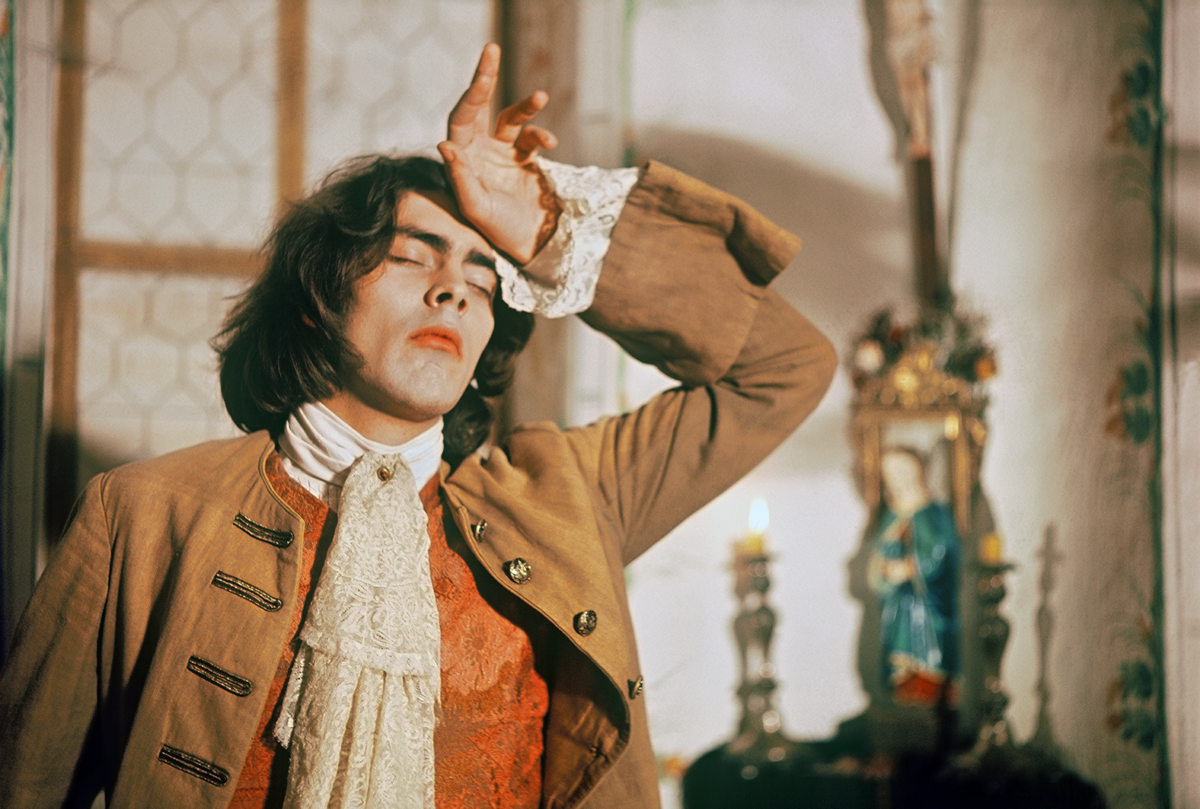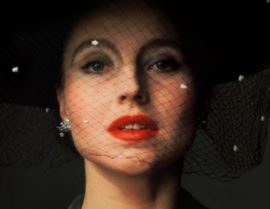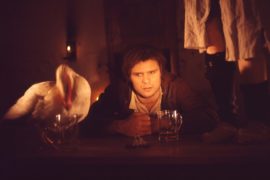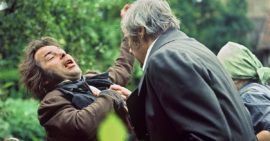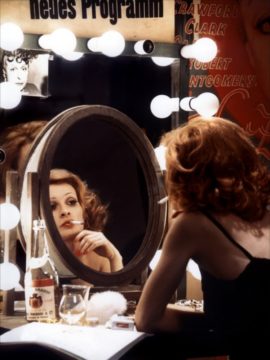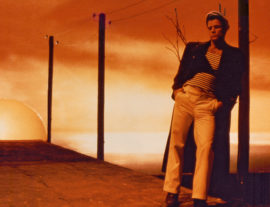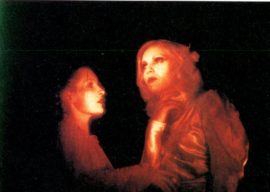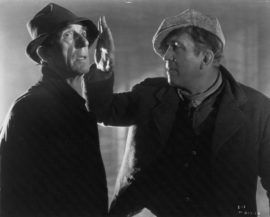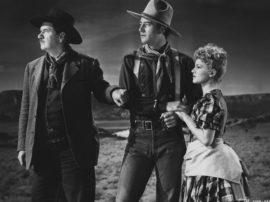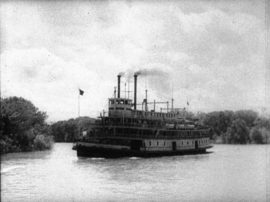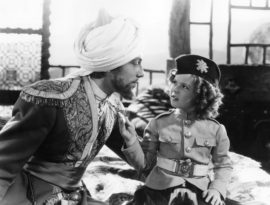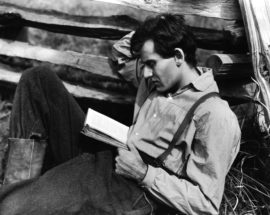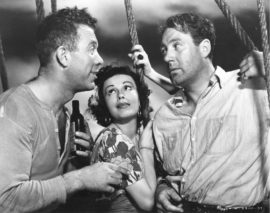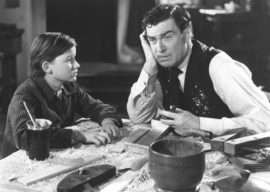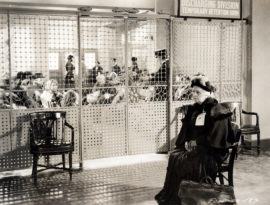Van 10 tot 16 juli verwachten we je opnieuw in Antwerpen voor het Zomerfilmcollege! Zeven dagen lang duiken we onder in twee filmhistorische thema’s, aan de hand van een vijftiental lezingen en zo’n twintig filmvertoningen.
Filmmakers hebben duizenden geheimen, het ZOMERFILMCOLLEGE leert je ze kennen!
MELANCHOLIA: GERMAN ROMANTIC CINEMA
De nieuwe Duitse cinema van de jaren 1970 wordt vooral gezien als een politieke cinema, een reactie tegen het apolitieke, ahistorische klimaat van het Duitse Wirtschaftswunder, een periode beheerst door economische welvaart en de drang om te vergeten, in een cultuur van soberheid, zakelijkheid en scepticisme. De Duitse cinema leek niet alleen gebroken te hebben met politieke apathie, maar ook met de erfenis van de Romantiek, die vorm had gegeven aan haar belangrijkste periode, het ’Expressionisme’ van de Weimar-republiek. Er was echter ook een tegenreactie, een andere opvatting over het type cinema dat Duitsland nodig had. Filmmakers als Werner Schroeter en Daniel Schmid lieten een ander geluid horen en zelfs Fassbinder verruilde Brecht voor de kitscherige romantiek van Douglas Sirk. Hans-Jürgen Syberberg was het meest uitgesproken over de noodzaak aan gevoelens in het emotioneel dode Duitsland. De erfenis van de Romantiek, met haar nadruk op pathos, irrationaliteit en het sublieme, was besmet door het Nazisme en mocht volgens deze cineasten niet aan de krachten van rechts worden overgelaten. Noem het romantisch anarchisme.
Hun films zijn ook een verbroedering tussen elitaire cultuur en popcultuur. Ze maakten low-budget cinema die ‘monumentaal’ wil zijn, die epische proporties wil opeisen voor een politiek progressief project. Het is spektakel over spektakel, met in het spotlicht een mystieke idealisering van apocalyptische passie, sublieme liefde en emotionele obsessie, van seksuele extase, (Liebes)dood en waanzin. Het is een bij momenten religieuze cinema, die onvermijdelijk hommage brengt aan de kathedraal van de kunst, de opera. Het is geen naïeve camp, maar zelfbewuste camp, die de vinger legt op de pijn van het anachronisme. Ook de cinema van Werner Herzog, evenzeer ‘uit de tijd’, lijkt, ondanks al zijn cynisme, gehypnotiseerd door de mogelijkheid van het sublieme, zij het veel meer verknocht aan de gedachte van de revolutie en ‘épater le bourgeois’. Het Zomerfilmcollege onderzoekt wat al deze filmmakers verbindt: de erfenis van de Romantiek, een mythologiseren van het verleden en een zoektocht naar het Absolute, hoe onmogelijk dat ook lijkt in een door en door gefragmenteerde, gecommodificeerde werkelijkheid.
Maandag 11 juli
- 14u30 Lezing The Consuming Passions of Werner Schroeter (Adrian Martin) + vertoning Der Tod der Maria Malibran (Werner Schroeter, 1971) 109’
- 19u30 Vertoning Ludwig – Requiem für einen jungfräulichen König (Hans-Jürgen Syberberg, 1971) 140’
Dinsdag 12 juli
- 9u30 Lezing Hans-Jürgen Syberberg’s Theatre of Representation and National Myth (Adrian Martin) + vertoning Lola Montes (Max ophüls, 1955) 115’
Woensdag 13 juli
- 14u30 Lezing Lecture Werner Herzog and the Romantic Figure of the Outsider (Cristina Álvarez López) + vertoning Jeder für sich und Gott gegen Alle (Werner Herzog, 1974) 109’
- 19u30 Vertoning Herz aus Glas (Werner Herzog, 1976) 97’
Donderdag 14 juli
- 9u30 Lezing Imagination, Abjection and Absurdity: The Shadow of Daniel Schmid (Adrian Martin) + vertoning La Paloma (Daniel Schmid, 1974) 110’
Vrijdag 15 juli
- 14u30 Lezing R.W. Fassbinder: A Shamelessly Utopian and Probably Infantile Vision of Something Like Love (Cristina Álvarez López) + vertoning Die Ehe der Maria Braun (Rainer Werner Fassbinder, 1979) 120’
- 19u30 Vertoning Querelle (Rainer Werner Fassbinder, 1982) 108’
Zaterdag 16 juli
- 9u30 Lezing A Crescendo Which Begins on an Extreme Emotion: Schroeter’s Der Rosenkönig (Cristina Álvarez López) + vertoning Der Rosenkönig (Werner Schroeter, 1986) 106’
- 19u30 Vertoning Variationen auf Genoveva (Eric de Kuyper, 2009) 45′ + inleiding en nagesprek door Eric de Kuyper
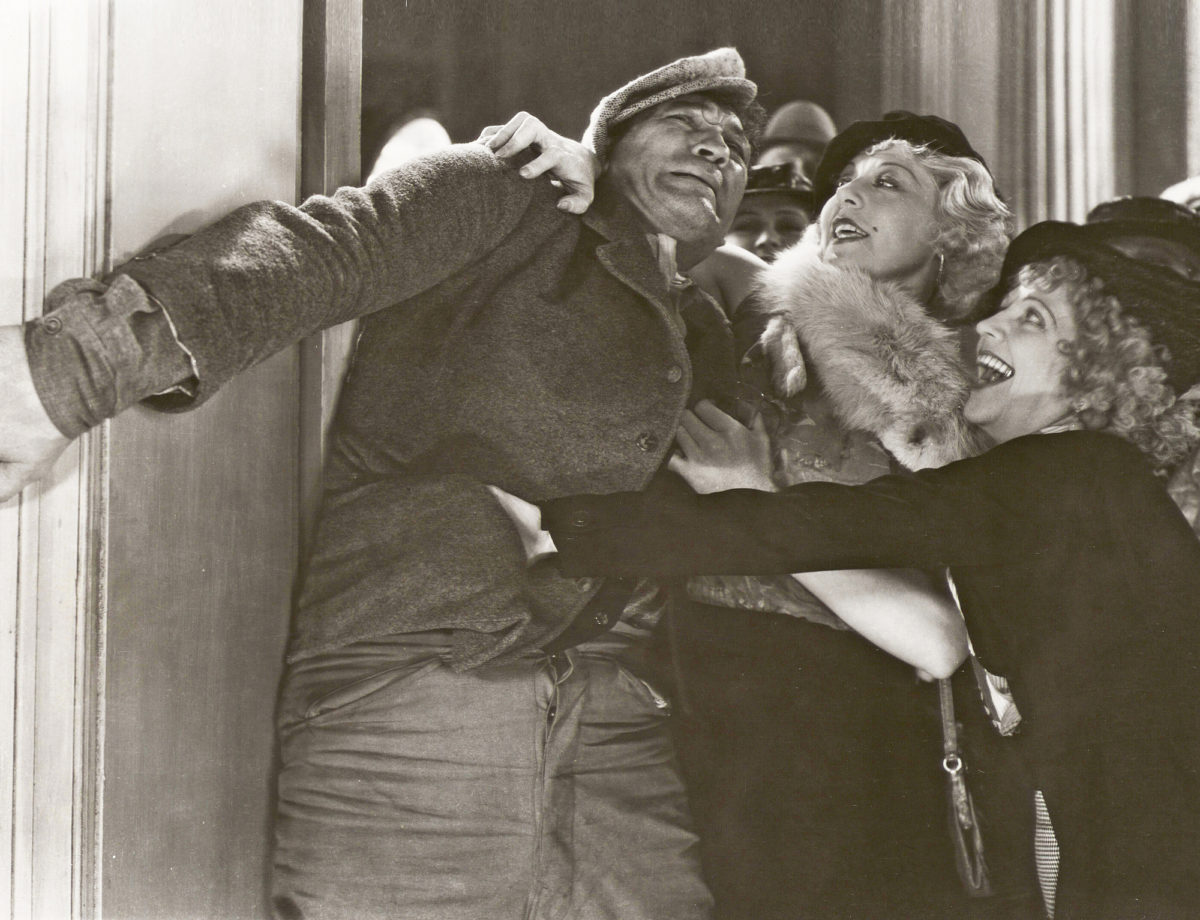
JOHN FORD IN THE HOLLYWOOD STUDIO SYSTEM
De naam John Ford is onlosmakelijk verbonden met het bij uitstek Amerikaanse genre van de western: Stagecoach (1939), My Darling Clementine (1946) en het eindeloos besproken en bestudeerde The Searchers (1956), om maar een paar beroemde voorbeelden te geven. Fords uiterst rijke carrière behelst echter zoveel meer dan enkel westerns en toont bij het werpen van een diepere blik een overrompelend sterk en gevarieerd oeuvre dat begint in de stille jaren 1910 en bijna zes decennia later eindigt. Zeker in de jaren 1930 getuigden Fords films van een duizelingwekkende veelzijdigheid. Binnen dat werk is er immers evengoed komedie te vinden (Steamboat Round the Bend (1935) met de op dat moment razend populaire komiek Will Rogers), humaan drama (Young Mr. Lincoln (1939), met Henry Fond), als thrillers (The Informer uit 1935) en atypische oorlogsfilms (The Long Voyage Home uit 1940). In zijn later werk onderzocht Ford in nostalgische mijmeringen het eigen oeuvre en de Amerikaanse ziel, zoals in het onderschatte The Sun Shines Bright uit 1953 of het bejubelde The Man Who Shot Liberty Valance uit 1962.
Professor Lea Jacobs, een van de meest gerespecteerde experten die onderzoek doet naar het leven en werk van John Ford en tevens een collega van David Bordwell aan de University of Wisconsin-Madison, zal in een reeks lezingen een genuanceerde en diepgravende kijk bieden op het nog steeds niet volledig doorgronde werk van een van de grootste Amerikaanse regisseurs die de filmgeschiedenis rijk is, met een focus op zijn werk uit de jaren 1930. Van de relatie tussen de films van Ford en die van zijn tijdsgenoten Josef von Sternberg en Friedrich Wilhelm Murnau, over een duik in de samenwerking tussen de regisseur en zijn fotografieleiders tot een kritische blik op de positie van Ford binnen het studiosysteem van de jaren 1930 en vroege jaren 1940: tijdens het Zomerfilmcollege leggen we de complexiteit bloot van een cineast die in zijn films een diepgaande kritiek op de Amerikaanse samenleving verbeeldde en die zelfs een halve eeuw na zijn dood nog steeds zijn invloed laat gelden in Hollywood en ver daarbuiten.
Zondag 10 juli
- 14u30 Lezing Ford and Murnau + vertoning Four Sons (John Ford, 1928) 97’
- 19u30 Vertoning The Black Watch (John Ford, 1929) 91’
Maandag 11 juli
- 9u30 Lezing Ford’s Transition to Sound + vertoning Arrowsmith (John Ford, 1931) 94’
Dinsdag 12 juli
- 14u30 Lezing Freelancing at RKO + vertoning The Informer (John Ford, 1935) 91’
- 19u30 Vertoning Wee Willie Winkie (John Ford, 1937) 97’
Woensdag 13 juli
- 9u30 Lezing Using the Fox Stars + vertoning Steamboat Round the Bend (John Ford, 1935) 81’
Donderdag 14 juli
- 14h30 Lezing Ford and the Long Take + vertoning Young Mr. Lincoln (John Ford, 1939) 100’
- 19u30 Vertoning Stagecoach (John Ford, 1939) 96’
Vrijdag 15 juli
- 9u30 Lezing Ford and Gregg Toland + vertoning The Long Voyage Home (1940)102’
Zaterdag 16 juli
- 14u30 Lezing Rethinking the Authorship of How Green Was My Valley + vertoning How Green Was My Valley (1941) 118’
PRAKTISCH
Inschrijven kan via de knop ‘koop tickets‘ bovenaan deze bladzijde. Je kunt tickets boeken om een of twee hoofdthema’s de volledige week te volgen. Dit jaar is er ook een optie om lezing per lezing te boeken, deze tickets zijn te reserveren op de site van De Cinema. Je kunt je inschrijven op onze nieuwsbrief om op de hoogte te blijven, en hou ook onze Facebookpagina en Instagram in de gaten.
De twee hoofdthema’s vinden afwisselend in de voor- of namiddag plaats, met telkens een filmvertoning gevolgd door een koffiepauze en een lezing. De avondvertoningen zijn voor alle deelnemers toegankelijk.
Het Zomerfilmcollege brengt filmliefhebbers in contact met gerenommeerde filmspecialisten uit binnen- en buitenland, maar ook met films uit de collectie van CINEMATEK en andere filmarchieven die zelden of nooit op het witte doek vertoond worden.
Once again, the ZOMERFILMCOLLEGE offers more than fifteen talks by internationally renowned experts and twenty screenings of recent digital restorations and rare 35mm prints from the extensive collection of the Royal Belgian Film Archive (CINEMATEK).
Filmmakers have thousands of secrets, ZOMERFILMCOLLEGE lets you in on them!

MELANCHOLIA: GERMAN ROMANTIC CINEMA
The new German cinema of the 1970s is seen primarily as a political cinema, a reaction against the apolitical, ahistorical climate of the German Wirtschaftswunder, a period dominated by economic prosperity and the urge to forget, within a culture of austerity and skepticism. German cinema seemed to have broken not only with political apathy, but also with the legacy of Romanticism, which had shaped its most important period, the ‘Expressionism’ of the Weimar Republic. However, there was also a counter-reaction, a different conception of the type of cinema Germany needed. Filmmakers such as Werner Schroeter and Daniel Schmid were taking a different route, and even Fassbinder traded Brecht for the kitschy romanticism of Douglas Sirk. Hans-Jürgen Syberberg was most outspoken about the need for emotions in an emotionally dead Germany. The legacy of Romanticism, with its emphasis on pathos, irrationality and the sublime, had been contaminated by Nazism and, according to these filmmakers, should not be left to the forces of the right. Call it romantic anarchism.
Their films are also a coming together of elite culture and pop culture. They made low-budget cinema that wants to be ‘monumental’, that wants to claim epic proportions for a politically progressive project. It is spectacle about spectacle, putting in the spotlight a mystical idealization of apocalyptic passion, sublime love and emotional obsession, of sexual ecstasy, (Liebes)death and madness. It is an at times religious cinema, which inevitably pays homage to the cathedral of art, opera. It is not naive camp, but self-conscious camp, which puts its finger on the pain of anachronism. Werner Herzog’s cinema, equally ‘out of time’, despite all its cynicism, also seems hypnotized by the possibility of the sublime, albeit much more wedded to the idea of revolution and ‘épater le bourgeois’. The Zomerfilmcollege explores what connects all these filmmakers: the legacy of Romanticism, a mythologizing of the past, and a search for the Absolute, however impossible that may seem in a thoroughly fragmented, commodified reality.
Monday, 11 July
- 14h30 Lecture The Consuming Passions of Werner Schroeter (Adrian Martin) + screening Der Tod der Maria Malibran (Werner Schroeter, 1971) 109’
- 19h30 Screening Ludwig – Requiem für einen jungfräulichen König (Hans-Jürgen Syberberg, 1971) 140’
Tuesday, 12 July
- 9u30 Lecture Hans-Jürgen Syberberg’s Theatre of Representation and National Myth (Adrian Martin) + screening Lola Montes (Max ophüls, 1955) 115’
Wednesday, 13 July
- 14h30 Lecture Werner Herzog and the Romantic Figure of the Outsider (Cristina Álvarez López) + screening Jeder für sich und Gott gegen Alle (Werner Herzog, 1974) 109’
- 19h30 Screening Herz aus Glas (Werner Herzog, 1976) 97’
Thursday, 14 July
- 9h30 Lecture Imagination, Abjection and Absurdity: The Shadow of Daniel Schmid (Adrian Martin) + screening La Paloma (Daniel Schmid, 1974) 110’
Friday, 15 July
- 14h30 Lecture R.W. Fassbinder: A Shamelessly Utopian and Probably Infantile Vision of Something Like Love (Cristina Álvarez López) + screening Die Ehe der Maria Braun (Rainer Werner Fassbinder, 1979) 120’
- 19h30 Screening Querelle (Rainer Werner Fassbinder, 1982) 108’
Saturday, 16 July
- 9h30 Lecture A Crescendo Which Begins on an Extreme Emotion: Schroeter’s Der Rosenkönig (Cristina Álvarez López) + screening Der Rosenkönig (Werner Schroeter, 1986) 106’
- 19u30 Screening Variationen auf Genoveva (Eric de Kuyper, 2009) 45′ + intro and Q&A with Eric de Kuyper
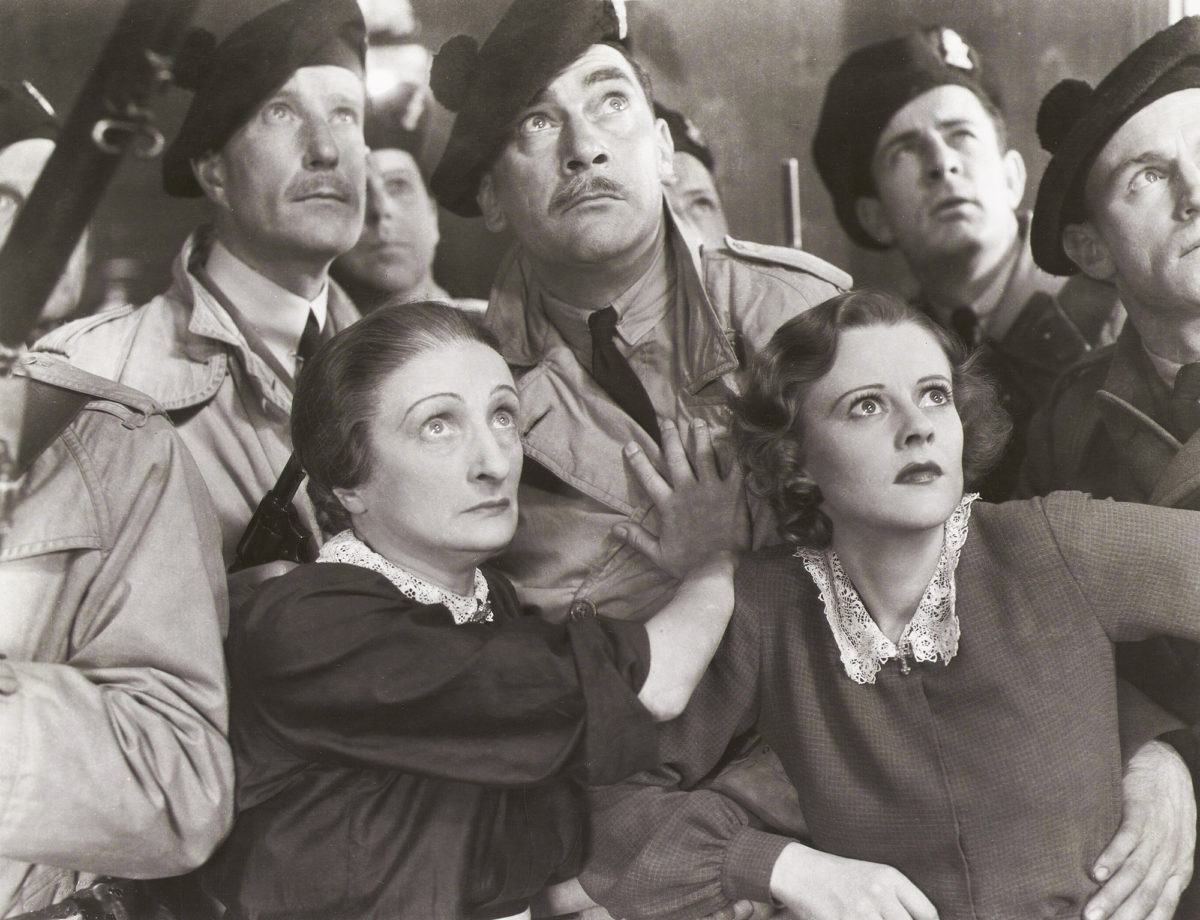
JOHN FORD IN THE HOLLYWOOD STUDIO SYSTEM
The name John Ford is inextricably linked with the preeminently American genre of the Western: Stagecoach (1939), My Darling Clementine (1946) and the extensively discussed and studied The Searchers (1956), to give just a few famous examples. Ford’s extremely rich career, however, encompasses so much more than just Westerns and, upon taking a deeper look, reveals an overwhelmingly strong and varied body of work that begins in the silent 1910s and ends nearly six decades later. Especially in the 1930s, Ford’s films demonstrated a dizzying versatility. Indeed, within that work there can also be found comedy (Steamboat Round the Bend (1935) with the then wildly popular comedian Will Rogers) and biographical drama (Young Mr. Lincoln (1939), starring Henry Fonda), as well as thriller (The Informer from 1935) and atypical war films (The Long Voyage Home from 1940). In his later work, Ford explored his own oeuvre and the American soul in nostalgic musings, as in 1953’s underrated The Sun Shines Bright or the acclaimed The Man Who Shot Liberty Valance (1962).
Professor Lea Jacobs, one of the most respected experts researching the life and work of John Ford and also a colleague of David Bordwell at the University of Wisconsin-Madison, will offer a nuanced and in-depth look at the still not exhaustively examined work of one of the greatest American directors in film history, in a series of lectures with a focus on his work from the 1930s. From the relationship between Ford’s films and those of his contemporaries Josef von Sternberg and Friedrich Wilhelm Murnau and the collaboration between the director and his directors of photography, to a critical look at Ford’s position within the studio system of the 1930s and early 1940s: during the Zomerfilmcollege we will uncover the complexities of a filmmaker whose films represented a profound critique of American society and who, even half a century after his death, continues to make an impact in Hollywood and far beyond.
Sunday, 10 July
- 14h30 Lecture Ford and Murnau + screening Four Sons (John Ford, 1928) 97’
- 19h30 Screening The Black Watch (John Ford, 1929) 91’
Monday, 11 July
- 9h30 Lecture Ford’s Transition to Sound + screening Arrowsmith (John Ford, 1931) 94’
Tuesday, 12 July
- 14h30 Lecture Freelancing at RKO + screening The Informer (John Ford, 1935) 91’
- 19h30 Screening Wee Willie Winkie (John Ford, 1937) 97’
Wednesday, 13 July
- 9h30 Lecture Using the Fox Stars + screening Steamboat Round the Bend (John Ford, 1935) 81’
Thursday, 14 July
- 14h30 Lecture: Ford and the Long Take + screening Young Mr. Lincoln (John Ford, 1939) 100’
- 19h30 Screening Stagecoach (John Ford, 1939) 96’
Friday, 15 July
- 9h30 Lecture Ford and Gregg Toland + screening The Long Voyage Home (1940)102’
Saturday, 16 July
- 14h30 Lecture Rethinking the Authorship of How Green Was My Valley + screening How Green Was My Valley (1941) 118’
PRACTICAL INFO
You can register via the ‘get tickets‘ button at the top of this page. You can book tickets to attend one or two of the main lectures throughout the week. This year there is also an option to book lecture by lecture, these tickets can be reserved on the site of De Cinema. To stay informed, keep an eye on this website, our Instagram account and our facebook event.
Both modules will take place alternately in the morning and the afternoon. The evening sessions can be attended by all participants.
For further questions, feel free to contact us!
Zomerfilmcollege brings cinephiles into contact with renowned scholars and critics, as well as with archival prints that are rarely or never shown on the big screen.
